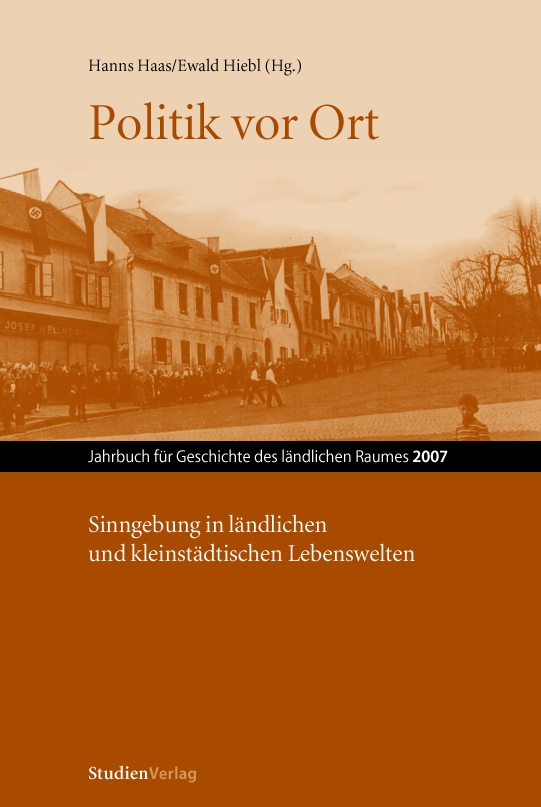Jan Antonín Prokůpek und Anna Chlebounová
Aspekte der Modernisierung in der Lebenswelt tschechischer Bauern im langen 19. Jahrhundert
DOI:
https://doi.org/10.25365/rhy-2007-10Abstract
The view of the changes of peasant estate in the Czech Lands of the nineteenth century as a specific social group is made possible by a case study with the analysis of the life and work of the Czech peasant Jan Antonín Prokůpek and his family. The peasant family can serve as a micro-historical sample for the understanding of values, views and models of behaviour in typical situations. It is obvious that Jan Antonín Prokůpek was an extraordinary peasant in his time. He used his entrepreneurship and understanding of new technologies by which he overcame the usual peasant conservatism according to which it was necessary to use old proven ways of production. He invested large sums of money into the use of artificial fertilizers and bought new machinery and thus he managed to build an effective agricultural company from a mediocre farm at the beginning. Prokůpek’s results may serve as an example of changes that occurred in the larger peasant farmhouses in Bohemia in the second half of the nineteenth century. The changes were outstanding but not extraordinary because it is necessary to view the fact that the farm was situated in one of the most fertile Bohemian regions and the farmer himself exceeded the average. Jan Antonín Prokůpek was also a good organizer and he took part in the regional and national political life. His family can be classified as a certain model of a healthy basic cell from which the social class of peasants consisted as the elite of Czech village society. In the second half of the nineteenth century the more advanced individuals accompanied the traditional values as diligence, clean-handedness, good management, family, devotion and others by the acceptance of the importance of science, wider outlook, entrepreneurship and finally also by the understanding of the importance of politics in the assertion of the peasant estate and of the Czech province in the wider sense. Jan Antonín Prokůpek and his family can serve as an example of the large change of Czech peasants who moved from the oppressed, humiliated and mocked elements of the society and became a part of the governing classes of the independent Czechoslovak Republic. Their representatives occupied important and sometimes decisive positions in the establishment of the new state, founded after World War I. They managed to carry out this change in seventy years (from 1848 to 1918). This story is accompanied by a certain excursus, a micro-historical piece of information about the roots and beginnings of the entry of Czech peasant women into the political scene. One of the first countrywomen who broke the traditional limitations of their position that forced them to look after their own farm, home, children and restricted their spiritual life to the church was the Czech peasant woman Anna Chlebounová from the village of Džbánov at Litomyšl in Eastern Bohemia.


